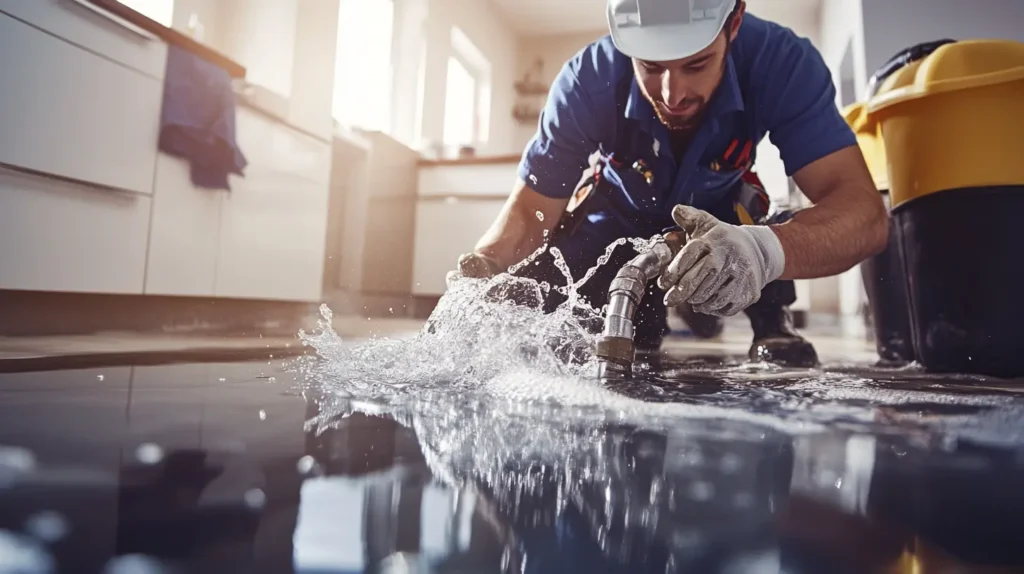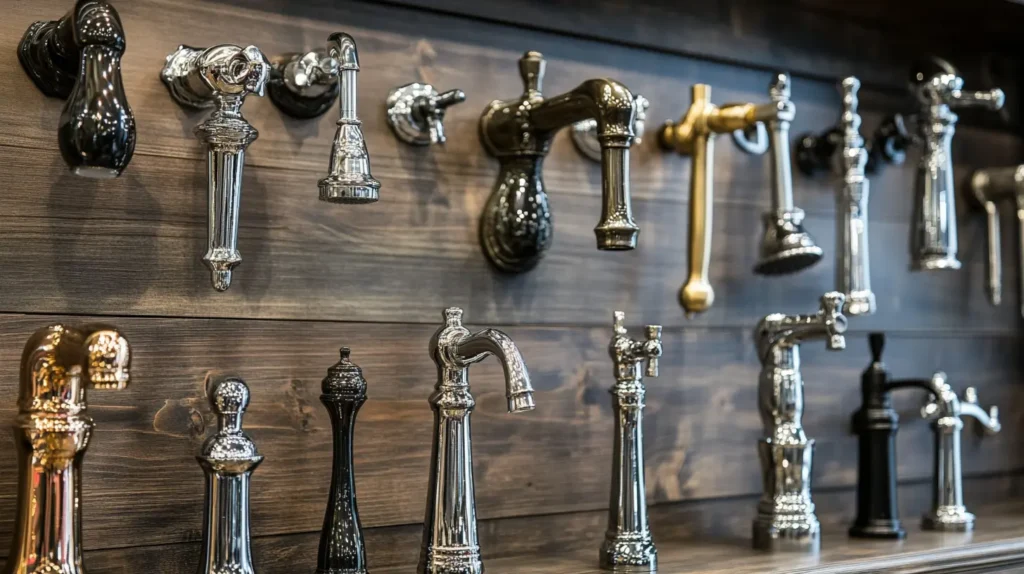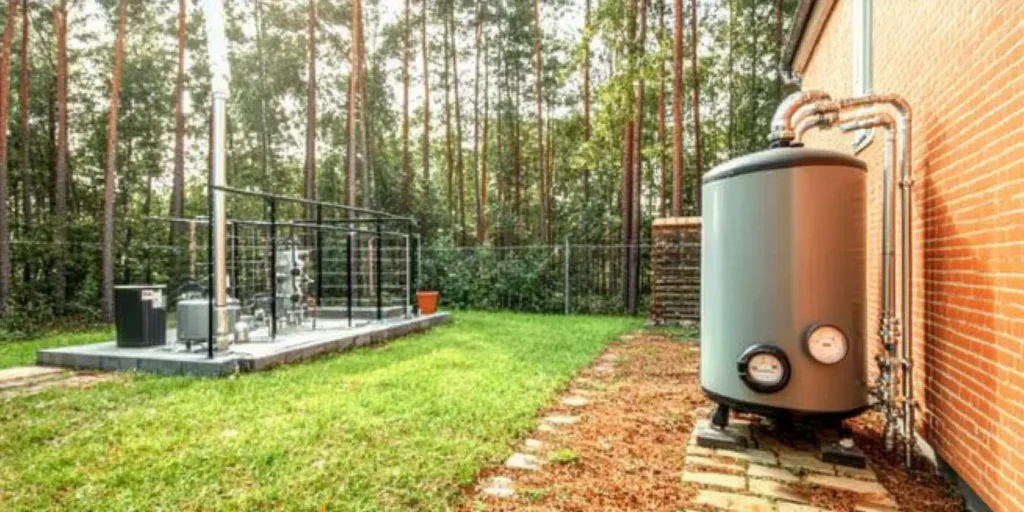In the sunny climes of Northeast Florida, hard water is a common challenge, often leading to the nuisance of pipe corrosion. This guide from Kingdom Based Plumbing will walk you through understanding and combating the effects of hard water on your home’s plumbing system.
Understanding Pipe Corrosion
What Causes Pipe Corrosion? Pipe corrosion in hard water conditions primarily results from the high levels of calcium and magnesium in the water, which deposit on the interiors of piping and fixtures, gradually leading to corrosion. Over time, these mineral deposits, or scale, can reduce water flow, impair heat efficiency, and eventually cause leaks and bursts.
Types of Pipes and Their Susceptibility
- Galvanized Pipes: Often found in older homes, these are particularly vulnerable to corrosion as the protective zinc coating eventually wears off, exposing the underlying iron to rust.
- Copper Pipes: While more resistant, the presence of oxygen and high mineral content in hard water can lead to pitting corrosion, marked by small, deep holes that weaken the copper.
1. Water Softeners
The Role of Water Softeners in Combating Hard Water
One of the most effective and widely recommended solutions for managing hard water and preventing the associated pipe corrosion is the installation of a water softener. Hard water, characterized by its high concentrations of calcium and magnesium, contributes to scale buildup which can clog and corrode plumbing pipes. By addressing the root cause of scale formation, water softeners play a pivotal role in extending the lifespan of plumbing systems.
How Water Softeners Work
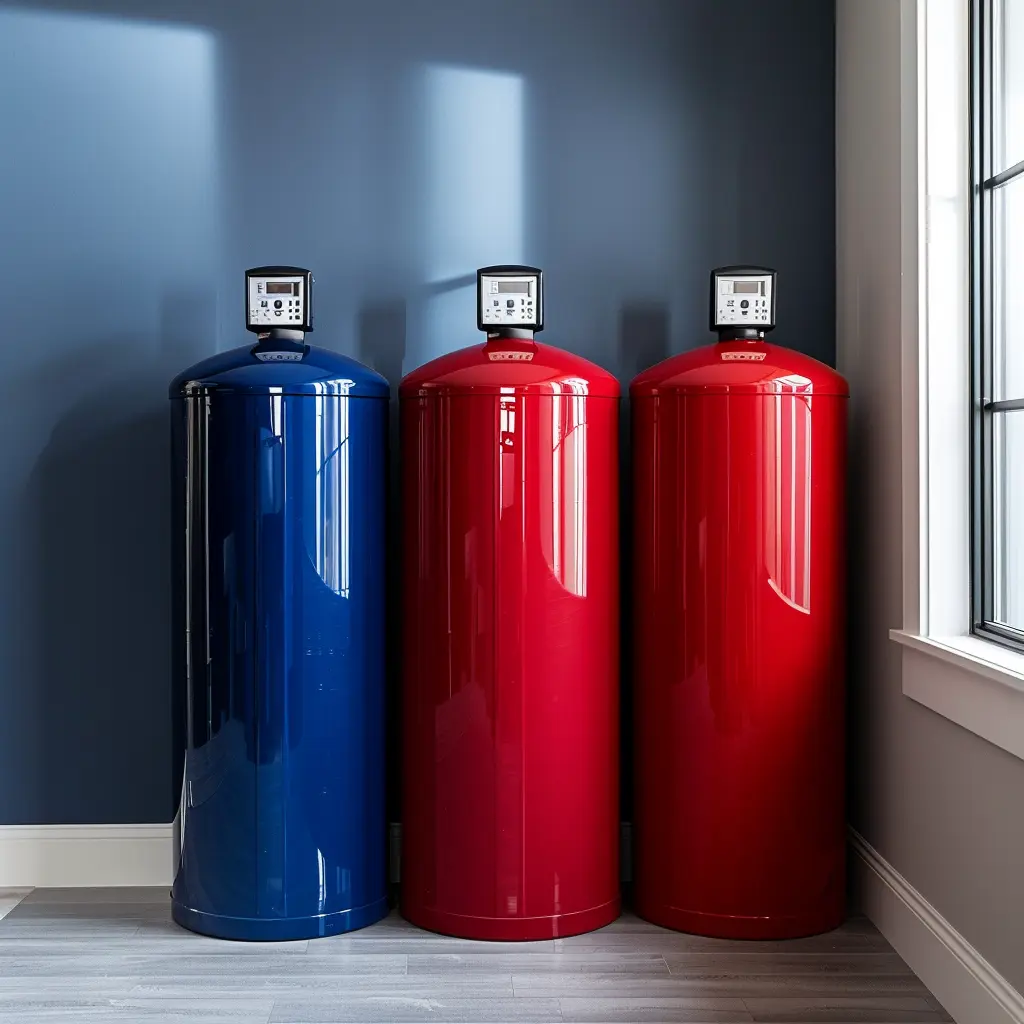
Water softeners operate on a simple ion-exchange principle. These devices contain a mineral tank filled with resin beads coated with sodium or potassium ions. As hard water passes through the tank, the resin beads attract and hold onto the calcium and magnesium ions, effectively removing them from the water. In exchange, the beads release sodium or potassium ions into the water. This exchange eliminates the minerals responsible for water hardness, preventing them from precipitating out and forming scale on the insides of pipes and fixtures.
The Benefits of Installing a Water Softener
1. Prevention of Scale Buildup: By removing the hard minerals before they can deposit on surfaces, water softeners prevent the formation of scale, which is a hard, chalky deposit that can clog pipes and restrict water flow.
2. Increased Lifespan of Plumbing Systems: Without scale buildup, pipes and fixtures can operate more efficiently and are less likely to suffer from corrosion-related failures.
3. Enhanced Water Quality: Softened water improves the effectiveness of soaps and detergents, reducing the need for chemical cleaning products and thereby minimizing further chemical exposure to your plumbing.
4. Energy Savings: Appliances that use water, like water heaters, operate more efficiently and consume less energy when free from scale buildup.
Considerations When Choosing a Water Softener
Choosing the right water softener involves several considerations to ensure it meets the specific needs of your household:
1. Size and Capacity: The size of the water softener should match the water usage of your household and the hardness level of your water supply.
2. Type of Regeneration: Water softeners can be timer-regenerated, meter-regenerated, or manually regenerated, each offering different benefits in terms of convenience and efficiency.
3. Salt-based vs. Salt-free: While traditional salt-based water softeners are highly effective at removing hard water minerals, salt-free versions prevent scale while retaining beneficial minerals.
4. Maintenance Requirements: Regular maintenance, including salt replenishment and resin bead replacement, is necessary to keep the water softener functioning effectively.
Section 2: pH Neutralizers
Tackling Corrosion with pH Neutralizers
In areas where water has a pH value below 7, indicating acidity, the use of pH neutralizers becomes crucial in managing water quality and preventing pipe corrosion. Acidic water tends to be aggressive towards plumbing, leaching metal ions such as copper and lead from pipes, which can lead to contamination and pipe failure. pH neutralizers address this issue by adjusting the water’s pH to a neutral level, which is safer for both human consumption and plumbing infrastructure.
Understanding the Science of pH Neutralization
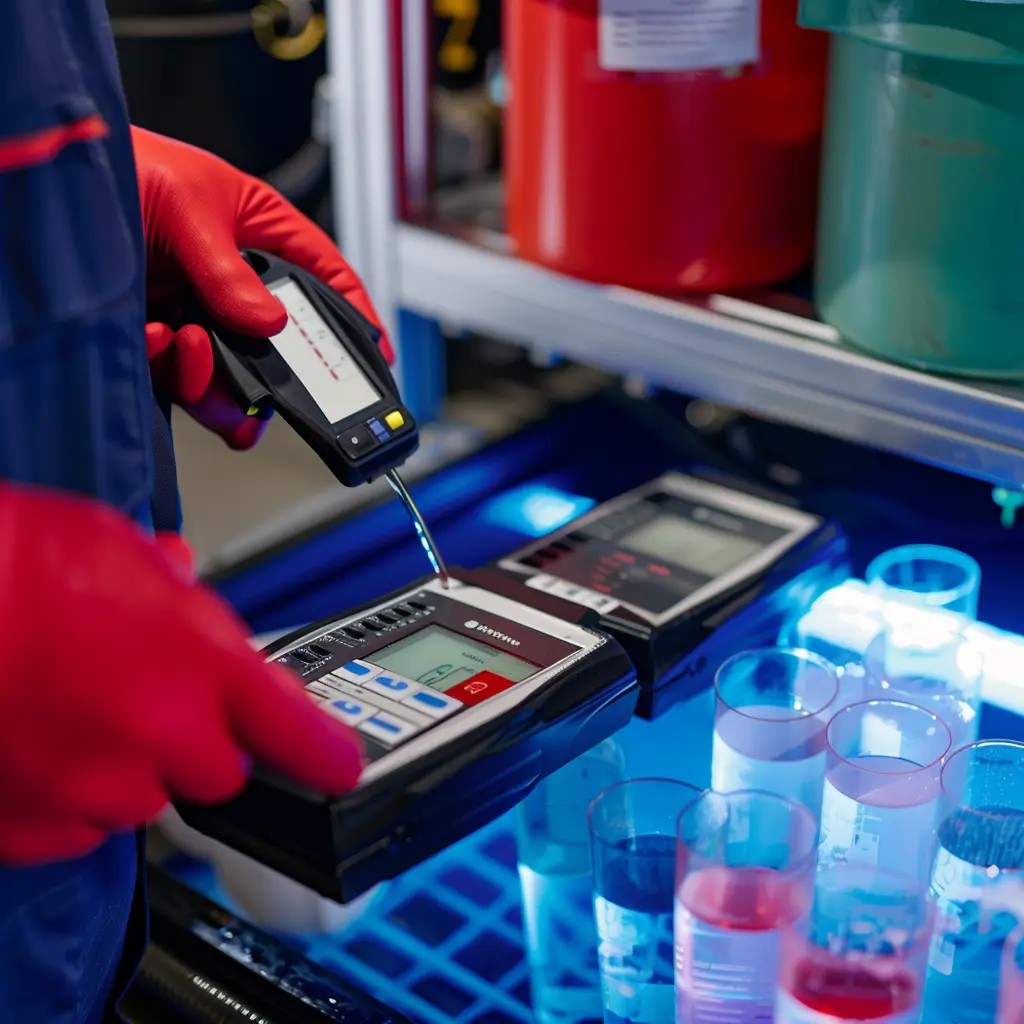
The pH scale measures how acidic or alkaline a substance is, on a scale from 0 to 14. A pH below 7 is considered acidic, while a pH above 7 is alkaline. Water with a pH level close to 7 is ideal for residential plumbing systems as it minimizes the potential for corrosion. pH neutralizers work by adding substances that react with the acidity in the water, often calcium carbonate (CaCO3) or magnesium oxide (MgO), which not only neutralize the acid but also contribute beneficial minerals to the water.
How pH Neutralizers Protect Your Plumbing
When added to your water supply, pH neutralizers slowly dissolve into the water, releasing ions that interact with hydrogen ions, which are the carriers of acidity. This reaction raises the pH level of the water to near neutral. A side benefit of using calcium carbonate as a neutralizer is that it can coat the insides of the pipes with a thin layer of calcite, which can help to protect the pipes from the inside out, preventing the direct contact of water with the metal and thereby shielding the pipes from corrosion.
Key Benefits of Using pH Neutralizers
1. Corrosion Prevention: By raising the pH level to neutral, these systems prevent the acidic water from corroding pipe walls, significantly extending the lifespan of your plumbing system.
2. Enhanced Water Quality: Neutralizing the pH not only prevents corrosion but also improves the overall taste and quality of the water, making it safer and more pleasant to drink.
3. Reduction in Metal Leaching: Neutral pH levels help reduce the risk of metal ions leaching into your drinking water, which can pose serious health risks.
Considerations When Installing a pH Neutralizer
1. Testing Water pH: Before installing a pH neutralizer, it’s important to have your water tested to determine its exact pH level. This will help in choosing the most appropriate system.
2. System Maintenance: pH neutralizers require regular maintenance, including refilling the neutralizing agent and cleaning the system to prevent clogging and ensure efficiency.
3. Integration with Other Systems: Often, pH neutralizers are used in conjunction with other filtration systems to provide comprehensive water treatment solutions.
3. Regular Maintenance and Inspection
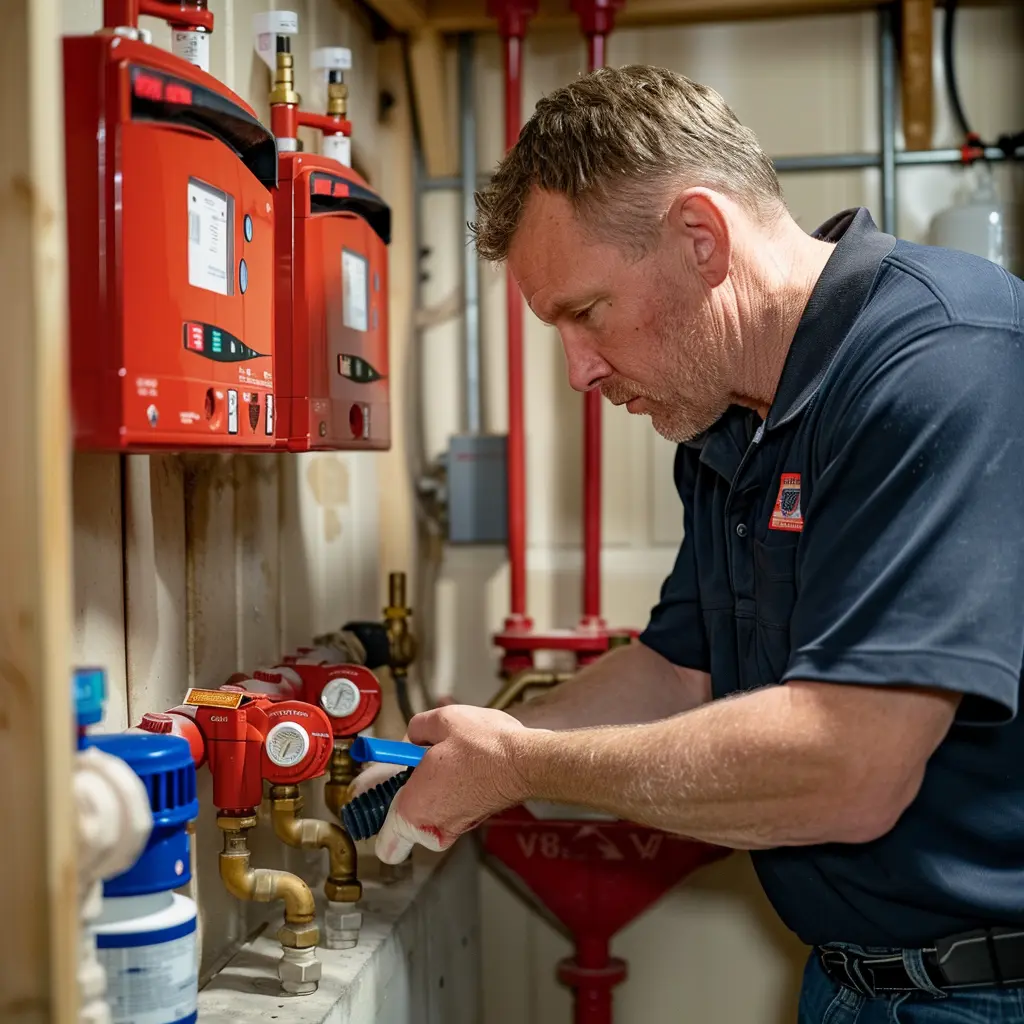
- Schedule annual inspections with a plumbing professional to check for signs of corrosion or scale buildup.
- Regular flushing of your water heater and pipes can remove sediments and reduce the risk of corrosion.
Section 4: Corrosion Inhibitors
The Role of Corrosion Inhibitors in Water Systems
In regions where modifying water chemistry through softeners or pH neutralizers is not feasible, the use of corrosion inhibitors offers a valuable alternative. These chemical compounds are added to the water supply to prevent corrosion by forming a protective barrier on the inner surfaces of pipes. This barrier acts like a shield, preventing the corrosive elements in the water from directly contacting the metal of the pipes.
How Corrosion Inhibitors Work
Corrosion inhibitors work by forming a passive layer of protection on the surfaces of metal pipes. This layer is usually composed of phosphates, silicates, or other chemical compounds that react with the metal surface and the water to create a thin, insulating film. This film effectively reduces the electrochemical reactions that typically lead to corrosion.
Key Mechanisms of Action:
- Adsorption: Inhibitor molecules adhere to the metal surfaces, creating a physical barrier that limits oxygen and other corrosive agents’ access to the metal.
- Ion Exchange: Some inhibitors work by exchanging ions with the metal ions on the surface of the pipe, altering the chemical environment in a way that reduces corrosion.
- Passivation: Certain inhibitors cause the formation of a passive oxide layer that is more chemically stable and less likely to react and cause corrosion.
Benefits of Using Corrosion Inhibitors
- Extended Lifespan of Plumbing Systems: By preventing the initiation and progression of corrosion, inhibitors extend the operational life of pipes and related equipment.
- Cost-Effectiveness: Compared to the cost of pipe replacement and system downtime, corrosion inhibitors are a relatively inexpensive solution.
- Versatility: Suitable for various types of plumbing materials, including copper, steel, and galvanized pipes.
- Efficiency: They do not significantly alter the water’s properties like taste or color, making them an ideal solution for residential water systems.
Implementing Corrosion Inhibitors in Your Home
Choosing the Right Type: The choice of a corrosion inhibitor depends largely on the type of plumbing material used in your home and the specific nature of your water supply. It is essential to consult with a water treatment professional to select the most effective inhibitor for your system.
Application: Corrosion inhibitors can be introduced into a water system using a dosing pump that injects the chemical directly into the water stream at calculated intervals. This ensures a consistent concentration of the inhibitor in the water, optimizing its protective effect.
Monitoring and Maintenance: Regular monitoring is necessary to ensure that the correct concentration of the inhibitor is maintained in the water supply. Over time, the effectiveness of the inhibitor can decrease, requiring adjustments in dosage or a switch to a different chemical formulation.
Section 5: Pipe Upgrades
Transitioning to Corrosion-Resistant Plumbing Materials
For homeowners grappling with recurring issues of pipe corrosion due to hard water, upgrading to modern, corrosion-resistant plumbing materials can offer a sustainable solution. Traditional metal pipes like copper and galvanized steel, while common, are susceptible to the deleterious effects of hard water. In contrast, materials such as Polyvinyl Chloride (PVC), Chlorinated Polyvinyl Chloride (CPVC), and Cross-Linked Polyethylene (PEX) provide robust resistance against corrosion, potentially saving homeowners significant money and hassle over time.
Understanding Modern Plumbing Materials
1. PVC (Polyvinyl Chloride): PVC pipes are lightweight, resistant to both corrosion and chemical leaching, and are significantly easier to install compared to their metal counterparts. They are ideal for drain, waste, and vent piping but are not suitable for hot water supply lines.
2. CPVC (Chlorinated Polyvinyl Chloride): CPVC shares many of PVC’s advantages but can withstand higher temperatures, making it a suitable choice for hot water lines. Its added chlorine content gives it excellent durability and an even greater resistance to heat and corrosion.
3. PEX (Cross-Linked Polyethylene): PEX piping is highly flexible, easy to install, and resistant to scaling and corrosion. Its versatility makes it suitable for both hot and cold water applications, and it is rapidly becoming a favored choice for residential plumbing due to its durability and ease of maintenance.
Advantages of Upgrading to Corrosion-Resistant Pipes
Longevity and Durability: Materials like PVC, CPVC, and PEX are not prone to the common issues that plague metal pipes, such as rust, corrosion, and scaling. This can significantly extend the lifespan of your plumbing system.
Reduced Maintenance Costs: With a lower propensity for damage, these materials require less maintenance. This means fewer pipe repairs and replacements, translating into long-term savings.
Improved Water Quality: Non-metal pipes do not leach metallic contaminants into the water, ensuring that the water quality remains high, free from the taste and color changes associated with metal corrosion.
Flexibility in Installation: Materials like PEX are flexible and can be snaked through walls and structures with minimal jointing, reducing the labor involved in installation and the potential for leaks.
Considerations for Pipe Upgrades
Cost: Initial installation of these modern materials can be more costly than traditional pipes, but the investment often pays off in terms of reduced maintenance needs and longer service life.
Compatibility: Homeowners need to ensure that the new piping is compatible with their existing plumbing fixtures and layout. Consulting with a professional plumber, like those from Kingdom Based Plumbing, is crucial to assess the specific needs and potential constraints of your home.
Regulatory Compliance: It’s important to check local building codes and standards to ensure that any new plumbing installation complies with regulatory requirements.
Frequently Asked Questions
How to prevent corrosion in water pipes?
Regular use of water softeners, periodic pH adjustments, and the application of corrosion inhibitors are effective strategies to prevent corrosion in water pipes.
Is green corrosion on copper pipes dangerous?
Yes, green corrosion, or patina, on copper pipes can indicate leakages where water has caused the copper to oxidize. If left unchecked, it can lead to major water damage.
How to clean corrosion on pipes?
For minor corrosion, a mixture of vinegar and baking soda can be used to clean affected areas. For more severe corrosion, it is advisable to consult with a professional plumber who can assess and address the issue appropriately.
How to prevent rust in pipes?
Preventing rust in pipes involves reducing moisture exposure, using rust-resistant materials for any new plumbing installations, and regularly checking and maintaining existing pipes to catch and treat rust early.
Conclusion
Hard water can be a formidable adversary against plumbing systems, but with the right knowledge and tools, you can protect your home’s pipes and ensure your water runs clean and smooth. Whether you choose to install a water system treatment or upgrade your pipes, taking proactive steps can greatly extend the life and functionality of your plumbing system.
For more personalized advice or to schedule a maintenance check, reach out to Kingdom Based Plumbing, your local experts in managing hard water challenges in Northeast Florida.

